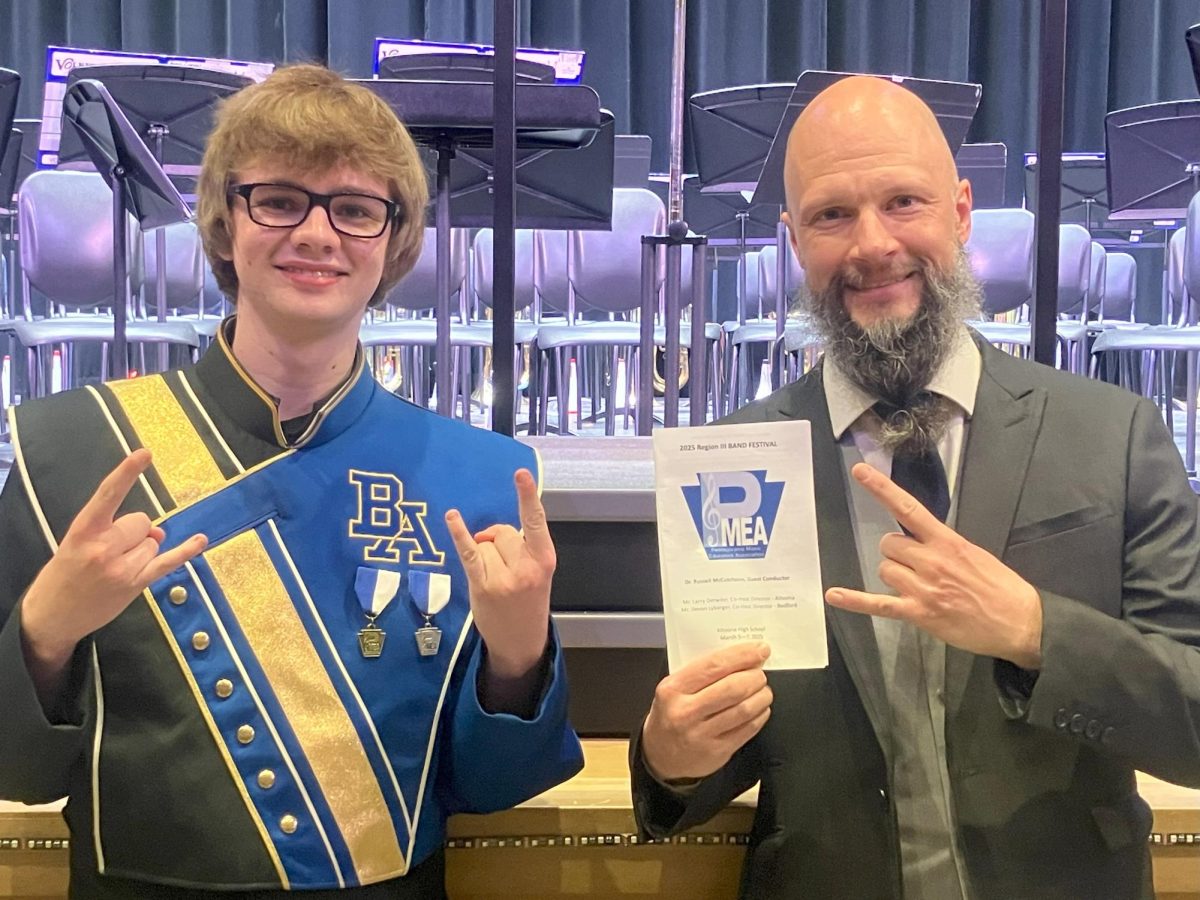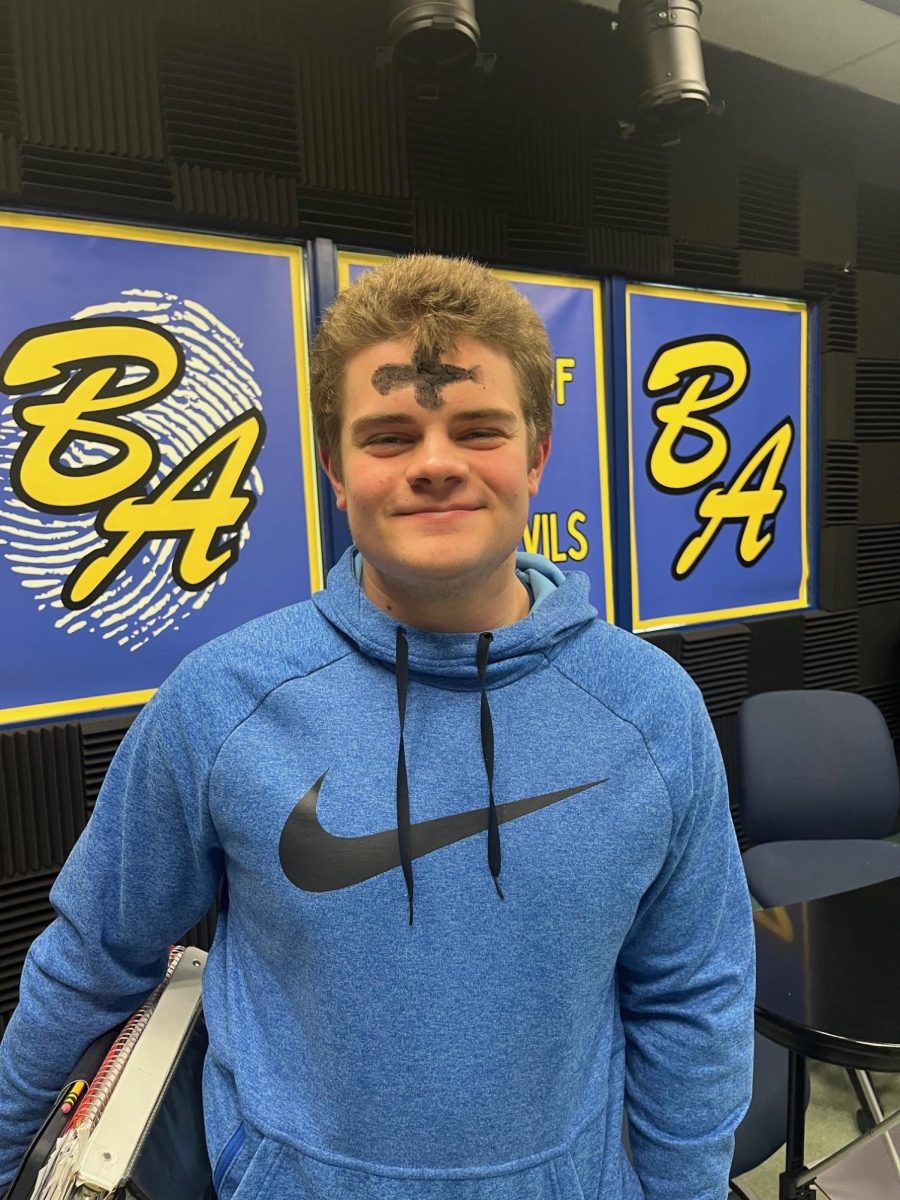The most common and effective coping skill is listening to music. music calms your nerves and relaxes your brain.
music calms your nerves and relaxes your brain. Music sucks you from reality and makes you feel free.
Not only does music help with anxiety and emotions. Each genre of music has its own emotions effect on you. Here are some examples: Classical music can induce feelings of calmness, peace, or clarity, helps people feel relaxed. And rock helps productivity and helps uplifts moves. however this is not always true. everyone is different, not all people feel the same when listening to certain genres. it depends on how you feel about the music itself. the problem with music, people listen to music that matches their mood. so sad music when your sad, and angry music when your angry. listening to music that you would listen to when your happy, sad, or mad, alleviate your emotions and replace it with another.
The BluePrint spoke to music teachers at BA to ascertain their views on the impact of music and its impact to mental health.
***
Why did you join the music field?
Mr. Wolfe: From a very young age, I knew that I loved music. As I progressed through elementary and high school here at Bellwood-Antis, I had great teachers that helped foster that love for music and gave me a great education. When I realized that I wanted to be a teacher, I had a choice to make between my love for science and music. Music won because it was fun.
Mr. Logue: Music is a multifaceted field that never ceases to amaze me. The infinite sound possibilities, exploration of sound, psychology captivates me.
Mr. Sachse: I had positive music experiences, and wanted to teach others to have the same.
How do you express yourself with music?
Mr. Logue: I think music (any discussion of, composition, performance, etc.) is a reflection of conscious, unconscious thought.
Mr. Sachse: Through listening, preforming, and teaching others to do the same.
How does music make you feel?
Mr. Wolfe: I love music because when I am making music by singing or with an instrument, it just makes me feel good. It’s hard to sing or play an instrument without it making you smile, or giving you that feeling of accomplishment.
Mr. Logue: Music, to many, has the capacity to elicit many, if not all, emotions. I am no exception to that.
Mr. Sachse: Calm or excited, depending on the music.
Does your mood/attitude change depending on what genre of music you are listening to?
Mr. Wolfe: Of course it will. Many years ago, my youth director at Tipton Baptist told me to be careful of what I was filling my mind with.
Mr. Logue: At one point in my life, yes. Having to touch music everyday means having to separate any music I hear to the feeling I might have experienced.
Mr. Sachse: YES!
What type of music do you prefer to listen to on a daily basis, and why?
Mr. Wolfe: I love many types of music. My car radio will most likely be turned to K-Love or Froggy 98. I like listening to music that is uplifting, positive, funny, or something that makes me feel as I sing along. Life is way too short to be depressed.
Mr. Logue: Over the course of a year, I cycle between different genres, pop, soundtrack, jazz, classical.
Mr. Sachse: Giant variety- to feel and learn many different things; jazz, classical, bluegrass, classic rock, video game music, etc.
Do you think music is a good coping skill? Why or why not?
Mr. Wolfe: This is a tricky question. It can be if used properly. If I’m dealing with something personal, I first take it to God in prayer. Then, often positive music (instrumental or vocal) helps turn that bad situation right around and withing minutes puts a smile on my face and helps me deal with the rest of the day. That’s what works for me. but, like I said before, Garbage in equals garbage out. With todays internet, people can find all sorts of music and what they find might not be a net positive.
Mr. Logue: It can be, plus it can be very successful! But, if its used as a distraction from the real issue, it loses its “good” status.
Mr. Sachse: Yes, can create or shift feelings.
Do you think your students cope with music?
Mr. Wolfe: Because I teach k-6 grade students, I’m not sure how relevant this question is at my level. With that being said, I often have students tell me that they enjoy singing/practicing chorus songs outside of the school day. Also, there is nothing is this teaching position that brings me more joy that seeing my students succeed during a performance. The smiles on their faces as the audience applauds is priceless.
Mr. Logue: Absolutely!
Mr. Sachse: Absolutely!
Tell a short story of when you saw a student express themselves through music.
Mr. Wolfe: During the 2020-21 school year when we were just happy to be back in the school building, I had a 4th grade student ask for help creating a song about friendship. She had already written the lyrics and was just looking to express her melody with some accompaniment. We worked on it for a few weeks and recorded her first song with guitar and vocals. At the time, she was one happy 4th grader and I was happy that I could help.
Mr. Logue: A student of mine involved in compositions became very aware of how different aspects of music demonstrated different emotions they were feelings. They want on to be one of he most sensitive to music students I’ve worked with.








